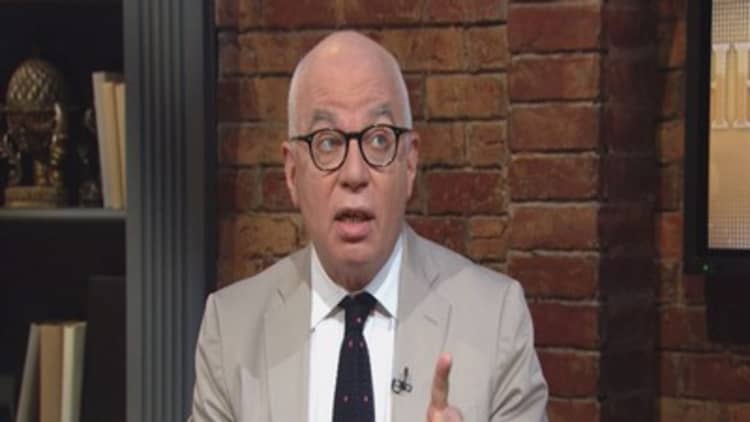
Which is more likely to win the TV battle: CBS or Netflix?
In media pundit Michael Wolff's eyes, there isn't any competition between the two, because old media has already crushed new media, primarily because streaming media still relies on old-line broadcasters.
To wit: Netflix pays the television industry $3 billion in licensing and production fees for the right of offering their programming to Netflix subscribers.
Netflix, of course, has a growing stable of original content. Yet network and cable programming remains hugely popular with viewers, suggesting the battle royal between digital media and broadcast may not be as contentious as it appears on the surface, Wolff says.
Read MoreFor Carl Icahn, it's splitsville with Netflix
"It's not that we're waiting for television to die at some further point, but I think that television is the disruptor of digital media," said Wolff, who recently published a new book on the subject called "Television Is the New Television."
Basically, Wolff believes that the digital revolution, which shook up the print and music industries, is turning out to just be a blip in television's prosperous history. The average U.S. adult spends four hours, 15 minutes watching TV, compared to one hour, 16 minutes consuming digital video a day, according to eMarketer. Television also boasts nearly twice the audience of digital media, and rakes in over 20 times more in revenue at $74 billion, according to Nielsen.
In light of those figures, can it really be argued that software is eating the world? According to Wolff, it's not happening in television and never will.
Wolff credits better management decisions by television executives—and sticking to their business model—for saving the industry.
"When the digital world came along and said everything's going to be free, television said, 'No,' " he said. That line in the sand was what Wolff said was "the critical moment."
He singled out CBS President and CEO Leslie Moonves, one of the media's highest paid executives, for praise.
"He has been very clear on the value of his product and then absolutely stubborn in making people pay for it," Wolff said.
—"On the Money" airs on CNBC Sundays at 7:30 p.m., or check listings for air times in local markets.


